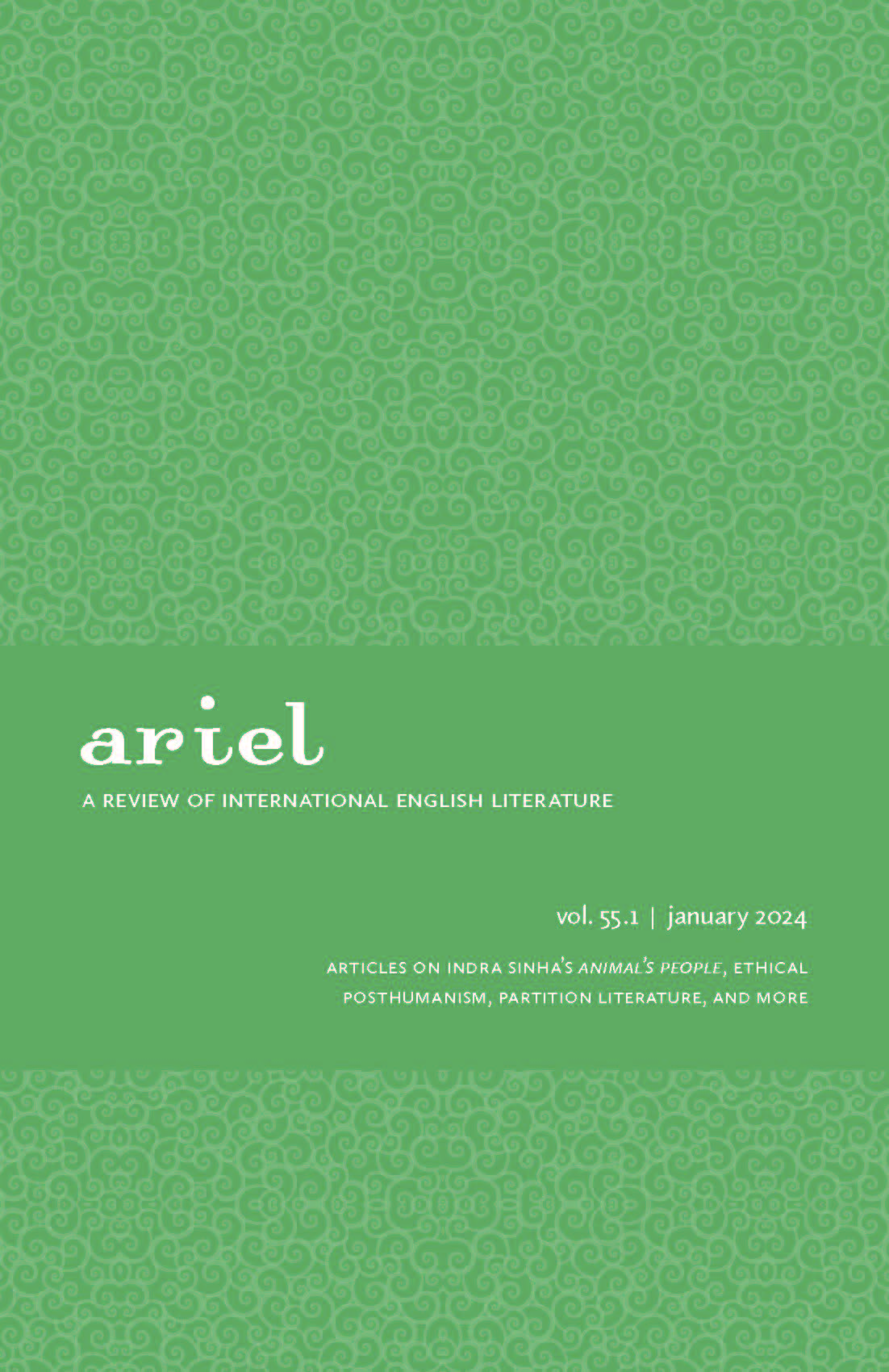"Just Us": On the Haunting Pronouns of Partition
Keywords:
Partition, pronouns, haunting, mourning, traumaAbstract
This essay contributes to an ongoing dialogue concerning the traumatic breach and reach of the 1947 partition of India and Pakistan. It dwells on the compromised construction of communities before and after the constitution of India and Pakistan by deliberating on the fundamental rhetorical ambiguity that haunts Partition literature and scholarship. “Just Us” examines a little-known aspect of Aijaz Ahmad’s famous riposte to Fredric Jameson’s “Third-World Literature in the Era of Multinational Capitalism,” specifically, the use of first-person plural pronouns in his discussion of Urdu literature, to argue that his rhetoric elides the division of Hindu and Muslim communities after independence. Insisting on the ambiguity inflecting Ahmad’s argument allows this essay to underscore the stakes of understanding Partition as an unsettling and disorienting event that defies closure. This article deploys the spectral concept of “haunting” to suggest the ways in which postcolonial scholars and literature mourn the loss of more composite communities before the fissures produced by Partition.


